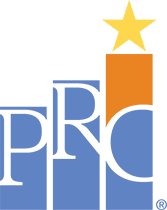For the past seven years, I’ve had the opportunity to attend the Association for Community Health Improvement (ACHI) conference and have truly enjoyed watching the conference evolve beyond IRS rules and regulations. Yet, in the midst of all this change, there is a steady and consistent passion among all speakers and attendees to move the population health needle. The energy in the rooms is palpable and each year we all leave the event both exhausted and reinvigorated, filled with ideas to implement in our own community. This year, the Chicago gathering themed “One Voice,” was no different.
Topic tracks focused content on strengthening collaborations, engaging patients and communities, advancing health equity, measuring for impact, developing healthy places, addressing social determinants, and creating better care systems. The interactive opening keynote sessions called on us to refocus our work on social determinants of health. Dr. Mona Hanna-Attisha left the audience riveted in the opening plenary on Day 2 when she read excerpts from What the Eyes Don’t See, her book detailing her discovery of the water crisis in Flint, Michigan, and the fight for justice for Flint’s children.
Showcasing their hard work and efforts at the 2019 conference were some of PRC’s long-time CHNA clients, including Chicago’s own Saint Anthony Hospital and Northwestern Medicine. Saint Anthony Hospital’s presentation, “Addressing Violence Through a Community-Centered Approach” addressed the traumatic impact of community violence that disproportionality impacts the high economic hardship communities in Chicago’s west, south, and southwest sides. The presentation focused on the need to target the root causes of violence. The team described many methods for doing so, stressing the importance of responding to community needs through a thorough assessment, recognizing that the numbers represent human beings, not human subjects. In addition, hospitals need to establish a network of community partners and complement the strengths of those partners. Other PRC clients Children’s Mercy Hospital Kansas City and Nemours Children’s Health System also presented findings from their work post-assessment.
Additional takeaways included: pivoting how we have worked on population health, specifically looking at strategies from cradle to grave; treating housing as a healthcare intervention; reinforcing the Promotora model – engaging trusted community resources for messaging to undocumented populations; recognizing implicit bias; and introducing the concept of implementation science for effective change.
While I love learning and the takeaways from our sessions, my favorite part of the 2.5 day conference is the opportunity to both connect face-to-face with clients and then connecting them with each other. This increased connection is something PRC is striving for in 2019, and we were excited to showcase that at our booth where conference attendees had the opportunity to literally plug in and listen to the PRCcast featuring Jim Sifuentes, Vice President, Mission and Community Development. This episode showcases the challenges his community health staff face.
Of course, expanding my own network is an ACHI highlight. Although each of our communities are different, the challenges we face moving community health forward remains similar, including issues surrounding access to care, opioid use, and limited behavioral health resources. Hearing from my colleagues about how they’ve shifted their thinking and hospital policies to make a difference leads me to believe it’s possible in any community. If you were at ACHI, I’d love to hear from you! What were your key takeaways? Email me or connect on LinkedIn.


